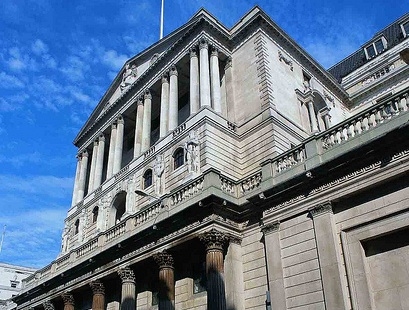The Bank Rate will still remain at 0.5%, it was announced this afternoon, with the record period of stability nearing the six year mark.
The Bank of England's Monetary Policy Committee at its meeting today voted to maintain it for another month, with one expert predicting no change will occur until 2016.
The base rate has been unchanged for a record period, with the last time a change was made being March 2009.
The committee also voted to maintain the stock of purchased assets financed by the issuance of central bank reserves at £375 billion. The latest inflation and output projections will be reported at 10.30am next Wednesday.
{desktop}{/desktop}{mobile}{/mobile}
There has been some disagreement among board members in the last two months about the rate. In August two of the nine committee members, who decide on the rate, wanted to raise it by 0.25%.
Ian McCafferty and Martin Weale voted against keeping the rate the same and called for the increase. But the rest of the committee opted to maintain it at 0.5%.
Ben Brettell, senior economist at Hargreaves Lansdown, said: "Given the outlook for inflation and wages, and the risks posed by the euro zone, I fully expect interest rates to remain on hold until the summer of 2015, and probably even longer. Indeed it would not be a surprise if they didn't rise until 2016."
{desktop}{/desktop}{mobile}{/mobile}
He said: "Rhetoric at the Bank of England has undergone a subtle but noticable shift in recent weeks.
"Chief economist Andrew Haldane admitted last month he was 'gloomier' than earlier in the year, citing weakness in the euro zone and a slump in UK living standards. Meanwhile Sir Jon Cunliffe, deputy governor for financial stability, said that low inflation and weak wage growth meant the Bank could afford to delay rate rises.
"There is little sign of further MPC members crossing the fence to join Ian McCafferty and Martin Weale in calling for higher rates. Indeed I believe there is more chance that one or both hawks will admit defeat and begin voting once more to leave rates on hold.
"For the first seven months of 2011 Martin Weale voted for higher rates, but in August of that year a weakening economic outlook forced him to back down and vote for no change.
"A combination of falling oil prices, an aggressive supermarket price war and virtually non-existent wage growth should ensure that inflation continues to fall in the coming months. Indeed it looks likely to drop below 1%, which would necessitate a letter from Mark Carney to the chancellor. YouGov's monthly poll of the public's expectation of inflation over the next 12 months remained at a five-year low of 1.9%, and the Bank of England is expected to revise its inflation forecasts downward in next week's quarterly inflation report."
Governor Mark Carney and other senior bank figures have hinted that a small rise in the near future could be possible as the economy continues to recover although any increases are expected to be small and gradual.
Some experts have forecast that the bank base rate could eventually rise to more historic norms, perhaps in the range of 2.5% to 5%.
Get FREE daily news summaries direct to your inbox. Sign up on the homepage now.
Follow us on Twitter and get frequent news alerts @FPM_online.
Or follow Editor Kevin O'Donnell - @FPM_Kevin or staff writer James Nadal - @FPM_James.
For the latest Sipp, SSAS and retirement news visit our sister news site www.sippsprofessional.co.uk and on Twitter @SippsPro.

